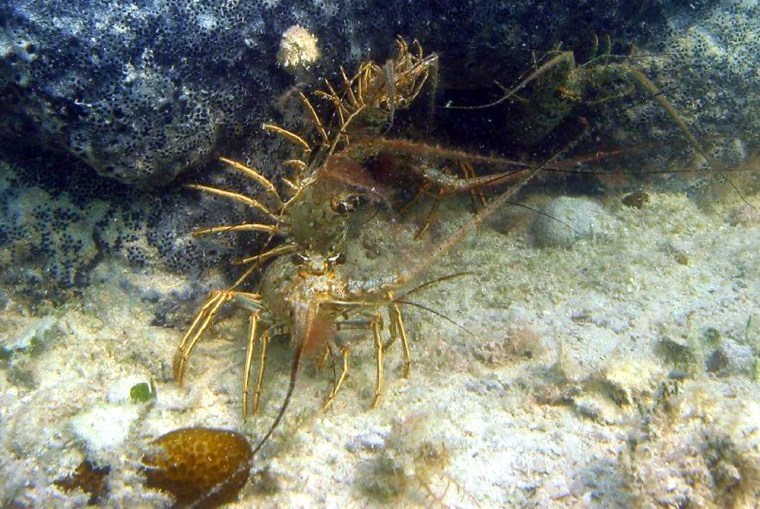When it comes to staying healthy, lobsters could teach humans a thing or two.
Tiny Caribbean spiny lobsters are social creatures that live together in underwater caves. But scientists have shown that the creatures can sense a lethal virus in other lobsters, even before they show signs of sickness, and then avoid them.
“This is the first record of healthy animals avoiding diseased members of their own species in the wild,” said Jeff Shields of the Virginia Institute of Marine Science.
Shields and scientists at the Old Dominion University in Norfolk, Virginia, who have been studying the PaV1 virus in lobsters for several years, noticed that infected lobsters rarely shared dens but they were not sure why.
In experiments reported in this week's issue of the journal Nature, they discovered that lobsters stayed healthy by avoiding dens with sick lobsters. They suspect the lobsters’ acute sense of smell gives them advanced warning of illness.
When young healthy lobsters were confined in labs with sick creatures, more than 60 percent become ill within 80 days, but the infection rate in wild populations in Florida is only 7 percent, according to the scientists.
Shields and his team said the lobsters’ behavior helped to curb the spread of the virus in the wild. They believe the ability to detect and avoid sick neighbors before they show symptoms of the illness gives them an evolutionary advantage which they can pass on to their offspring.
